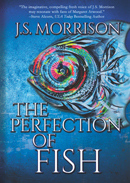
 |
In the small town of Assurance, North Carolina, agoraphobe Nadia Holman is the last remaining resident. Nadia relies on Berky Benson, a former student and resident, to take care of her while she attempts to document and preserve Assurance’s history. What Nadia doesn’t realize is that her genes are being used and manipulated by Berky, who believes that society is trying to eradicate masculinity, and who funds a genetic manipulation research project in the hopes of creating subservient women. Diana, Nadia’s twin sister, stops by Assurance for a visit and realizes both her sister and her sister’s love for their hometown are being exploited. Diana joins a ragtag team of rebels who work together to uncover and undo the dangerous experiments helmed by Berky’s laboratory team, Xanadu. What ensues is a clash of cultures, beliefs, science, and manpower with the future of humanity at stake.
The author imagines the United States about 20 years or so into the future. Men of this time can take a drug known as Testrial to make them less aggressive. Technology is also integrated into society in the form of almost constant surveillance. The town of Assurance plays a huge role in this novel, in part because it is “off the map,” but also because the town’s own mythology and roots drive much of the story. Assurance is believed to be a blessed place, founded at the center of intersecting ley lines and their power. It is home to a new species of fish in the nearby river, which is believed to possess some form of immortality power. These two beliefs have been passed down to residents of the town, mainly Nadia and Berky. Their conviction in the mysticism of Assurance and in Ichthy’s fish bones drive their motivations. Nadia’s beliefs about Assurance, Ichthy, and saving the town make her susceptible to exploitation. Meanwhile, Berky’s beliefs about Ichthy’s bones make him power-hungry.
Genetic manipulation and bioengineering are common tropes in science fiction, and the author ties them into gender and control, much like in the novel Viral War by Josephine DeBois. In this book, however, it seems the author borrows an idea from the Jurassic Park franchise—splicing different DNA together to create a more perfect specimen. Whereas the scientists in Jurassic Park used multiple animal DNA to build the ultimate dinosaur, Berky and his lab have used fish genetics from the beloved Ichthy to test out genetic manipulation. Transhumanism is a big theme in this novel, and it is something that Berky and his team use to inspire people to join his cause. But while transhumanism is something to aspire to in the eyes of Berky’s cohorts, it is also a lie used to sell their purpose and bypass the law for genetic experimentation. The author plays around with this idea, questioning what it means to be human on a moral scale when actions seem to be inspired and twisted into acts of malevolence. A sci-fi novel that satirizes social norms and conspiracy theories, this story is a wild tale from start to finish. This book was a Maxy Award Sci-Fi/Fantasy finalist.
Next Focus Review
Previous Focus Review